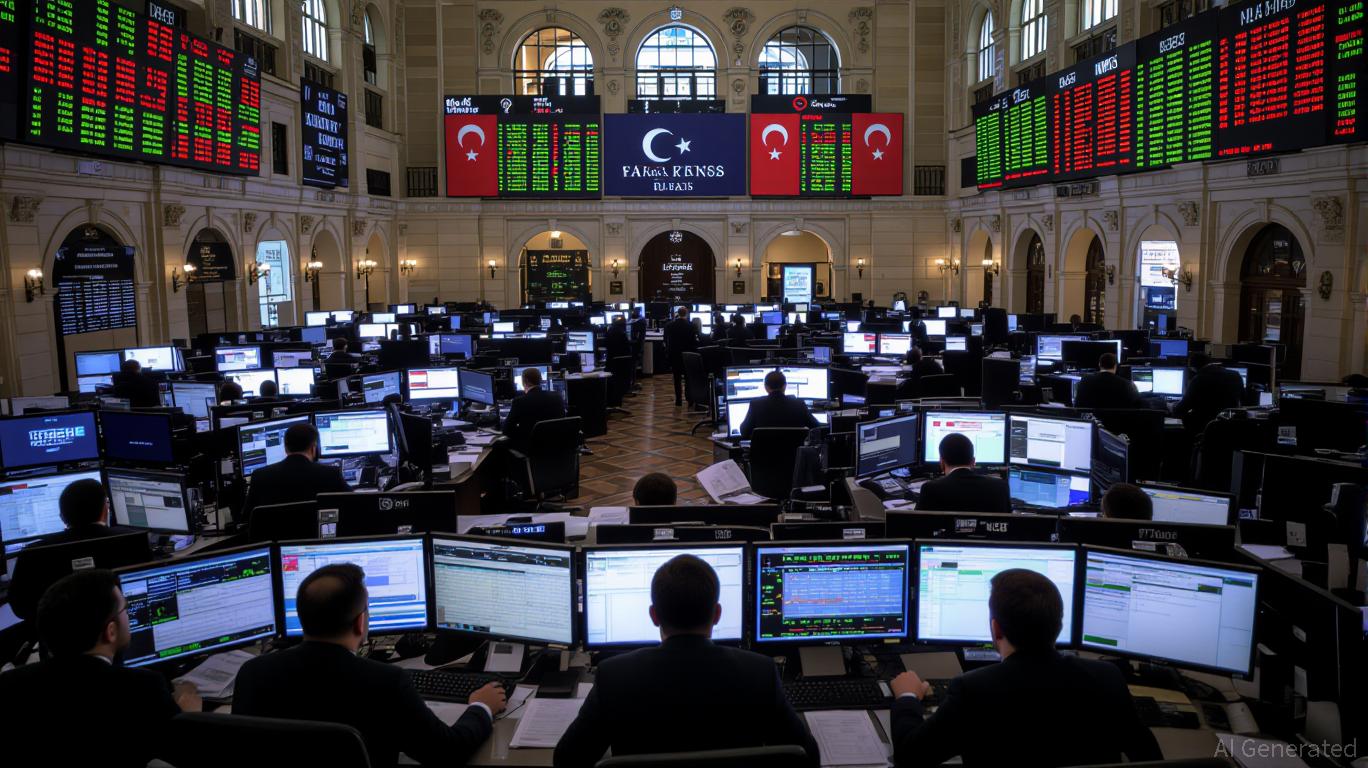In the volatile landscape of global geopolitics, Turkey has emerged as a linchpin of stability, leveraging its unique position as a NATO member with deep ties to both Russia and Ukraine. As the 2025 edition of the “Istanbul Process” unfolds, Ankara’s mediation efforts are not only reshaping the dynamics of the Ukraine-Russia war but also creating a ripple effect across regional and global investment opportunities. For investors, this evolving narrative presents a compelling case to reassess emerging markets through the lens of geopolitical pragmatism.
Turkey’s Geopolitical Balancing Act: A Catalyst for Stability
Turkey’s dual role as a NATO ally and a strategic partner to Russia has allowed it to act as a neutral arbiter in the conflict. By facilitating high-level talks in Istanbul, Ankara has positioned itself as the most credible mediator in a war that has defied resolution for nearly four years. The recent prisoner exchanges and draft memoranda of understanding (MoUs) between Russian and Ukrainian delegations, brokered under Turkish auspices, underscore this influence.
This balancing act is underpinned by Turkey’s economic and military relationships with both sides. On the Russian front, Ankara has deepened energy and trade ties, importing 42% of its gas from Moscow via the TurkStream pipeline and absorbing 21% of Russia’s global oil product exports. Meanwhile, Turkey’s defense exports—particularly the Bayraktar TB-2 drones—have become a cornerstone of Ukraine’s resistance. These dual engagements have not only diversified Turkey’s economic portfolio but also insulated it from the collateral risks of the conflict.
Energy and Infrastructure: The New Frontiers of Investment
Turkey’s energy sector is a prime beneficiary of its mediation role. As a transit hub for Russian energy to Europe and a growing importer of Ukrainian grain, Turkey is uniquely positioned to capitalize on the shifting energy dynamics. The TurkStream pipeline remains a critical asset, while the country’s renewable energy push—driven by 56% of its power generation coming from renewables—offers long-term stability.
Investors should also consider Turkey’s infrastructure investments, particularly in the 11 earthquake-affected provinces. The government’s 2023 reconstruction incentives, including tax breaks and streamlined permitting, have spurred a wave of construction and energy-efficient projects. This sector is further bolstered by the EU’s Carbon Border Adjustment Mechanism (CBAM), which is compelling Turkish manufacturers to adopt greener practices.
Strategic Sectors and Risk Mitigation
Turkey’s strategic industries—defense, logistics, and technology—are attracting renewed attention. The establishment of a Ukrainian production facility for Bayraktar TB-2 drones, set to open in August 2025, exemplifies the country’s ability to blend diplomacy with economic gains. Similarly, Turkey’s logistics sector, with its strategic ports and overland routes, is poised to benefit from increased regional trade flows.
However, macroeconomic risks persist. Turkey’s 65% average inflation rate and lira devaluation in 2023 highlight the need for cautious positioning. Investors should prioritize sectors with tangible geopolitical tailwinds, such as energy infrastructure and defense manufacturing, while hedging against currency volatility through diversified portfolios.
A Call to Action: Positioning for Long-Term Gains
For investors seeking exposure to emerging markets, Turkey offers a nuanced opportunity. The country’s ability to navigate the Ukraine-Russia conflict while maintaining its NATO commitments has enhanced its geopolitical credibility. This, in turn, has attracted foreign direct investment (FDI) inflows of $5.6 billion in 2023, despite global uncertainties.
Key investment strategies include:
1. Energy Transition Plays: Target renewable energy projects and hydrogen infrastructure in Turkey, where government incentives align with EU green mandates.
2. Defense and Dual-Use Technology: Invest in Turkish firms like Baykar and Aselsan, which are expanding their global footprint through partnerships with Ukraine.
3. Infrastructure Bonds: Consider sovereign and corporate bonds tied to Turkey’s earthquake recovery programs, which offer risk-adjusted returns.
Conclusion: Stability as a Strategic Asset
Turkey’s mediation role in the Ukraine-Russia conflict is more than a diplomatic achievement—it is a blueprint for how emerging markets can leverage geopolitical positioning to unlock value. While challenges remain, the country’s strategic depth, economic resilience, and institutional reforms make it a compelling case study for investors. As the Istanbul Process continues to evolve, Turkey’s ability to balance competing interests may well define the next chapter of regional and global investment dynamics.

